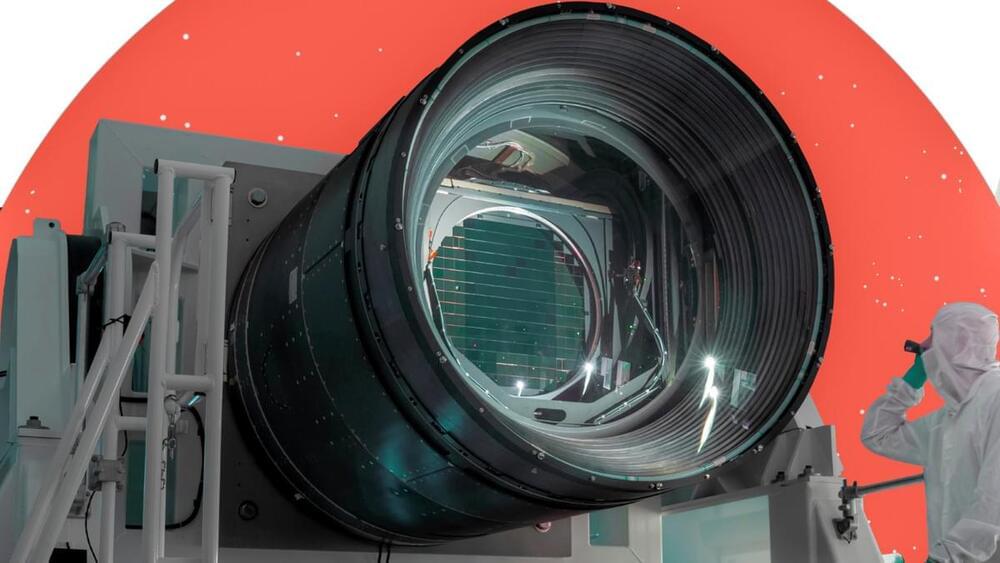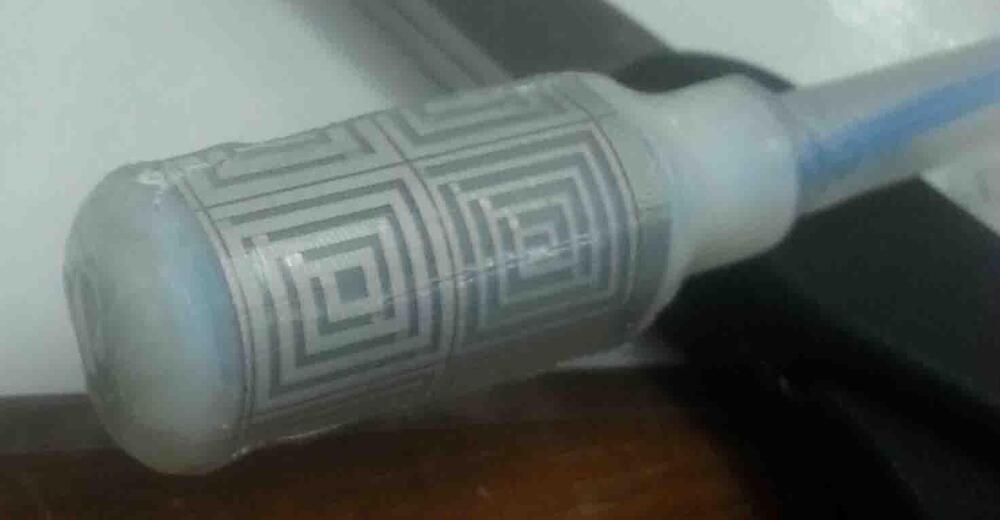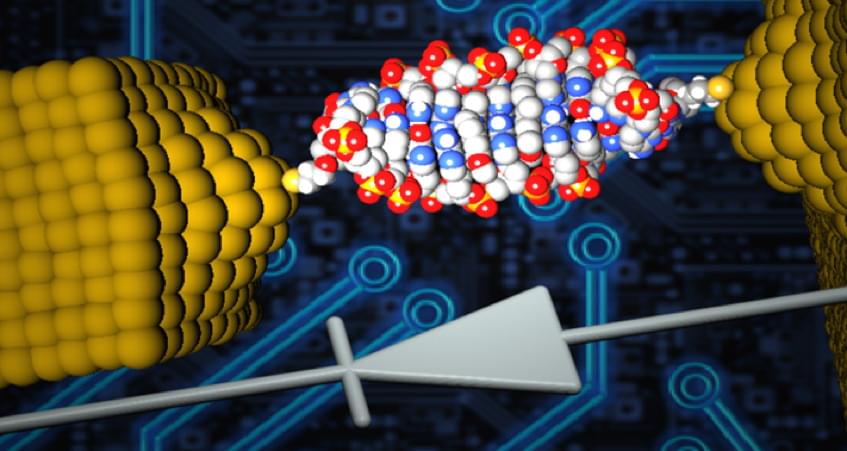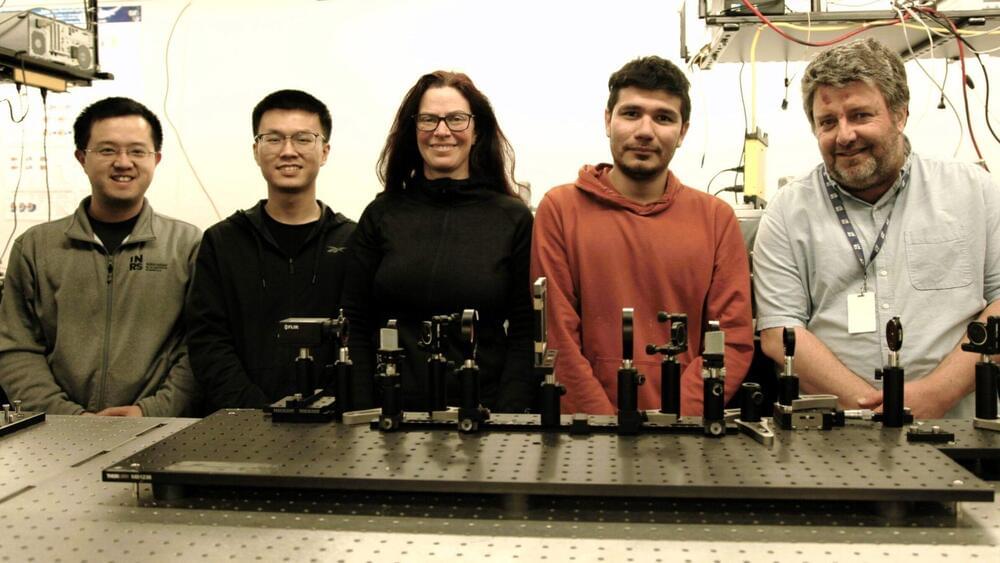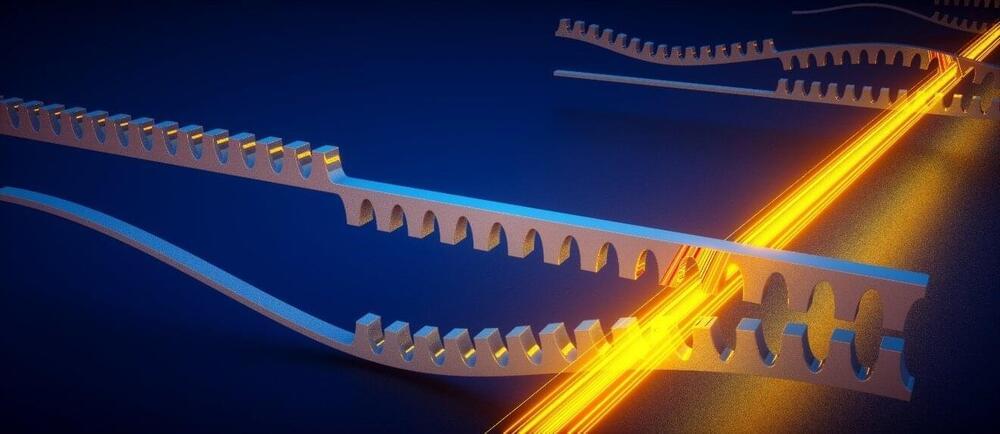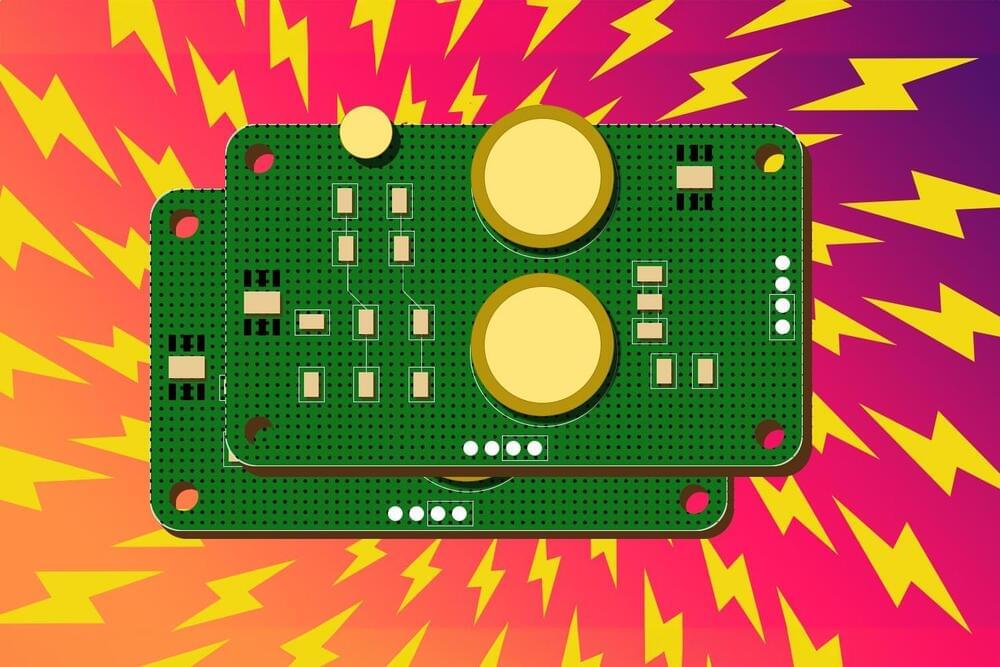Archive for the ‘electronics’ category: Page 9
Apr 9, 2024
Signs of Life would be Detectable in Single Ice Grain Emitted from Extraterrestrial Moons
Posted by Natalie Chan in categories: alien life, electronics
Could life be found in frozen sea spray from moons orbiting Saturn or Jupiter? New research finds that life can be detected in a single ice grain containing one bacterial cell or portions of a cell. The results suggest that if life similar to that on Earth exists on these planetary bodies, that this life should be detectable by instruments launching in the fall.
The ice-encrusted oceans of some of the moons orbiting Saturn and Jupiter are leading candidates in the search for extraterrestrial life. A new lab-based study led by the University of Washington in Seattle and the Freie Universität Berlin shows that individual ice grains ejected from these planetary bodies may contain enough material for instruments headed there in the fall to detect signs of life, if such life exists.
“For the first time we have shown that even a tiny fraction of cellular material could be identified by a mass spectrometer onboard a spacecraft,” said lead author Fabian Klenner, a UW postdoctoral researcher in Earth and space sciences. “Our results give us more confidence that using upcoming instruments, we will be able to detect lifeforms similar to those on Earth, which we increasingly believe could be present on ocean-bearing moons.”
Apr 3, 2024
The world’s largest digital camera is ready to investigate the dark universe
Posted by Genevieve Klien in categories: cosmology, electronics
The 3,200-megapixel LSST camera is the size of a compact car and weighs in at 3 metric tons, which is about half the weight of a male African bush elephant. The LSST’s wide-field view will attempt to solve lingering mysteries surrounding dark energy, the force that accounts for around 70% of our universe’s matter-energy content and causes the expansion of the cosmos to accelerate.
The LSST will also investigate dark matter, the mysterious substance that accounts for around 85% of all stuff in the cosmos despite being invisible to us, as well as answer other astronomical questions as it creates what Željko Ivezić, Director of Rubin Observatory’s construction, describes as the “greatest movie of all time and the most informative map of the night sky ever assembled.”
Apr 2, 2024
Swallowable Sensors could Pinpoint Gut Movement Problems for Patients
Posted by Natalie Chan in categories: biotech/medical, electronics
Scientists have developed an ingestible capsule dotted with sensors that can detect pressure in a patient’s guts and detect points of failure.
The ingestible system will give colorectal medical teams an unprecedented understanding of the movement of a patient’s digestive tract, or lack thereof. Instead of simply taking images of inside the guts, the system will sense whether it’s contracting, how much pressure is exerted and exactly where it might be inactive.
The system has been tested in a synthetic gut and animals. A patent for the technology is pending.
Apr 1, 2024
China: Hypersonic missile scientists build sensor to boost rail safety
Posted by Gemechu Taye in categories: electronics, military
A team of researchers from China, who are originally engaged in hypersonic missile development, have developed a mechanical sensor that can boost the safety on the country’s high-speed rail network.
As per an article in the South China Morning Post, the scientists have proposed using a high-sensitivity technology to paint a complete picture of every turn of the train’s wheels.
Mar 31, 2024
Building Molecular Circuits with DNA
Posted by Dan Breeden in categories: computing, electronics
Diodes, also known as rectifiers, are a basic component of modern electronics. As we work to create smaller, more powerful and more energy-efficient electronic devices, reducing the size of diodes is a major objective. Recently, a research team from the University of Georgia developed the world’s smallest diode using a single DNA molecule. This diode is so small that it cannot be seen by conventional microscopes.
A diode is an electrical device that allows current to move through it in one direction much more easily than the other. No diode prevents 100% of current flow in one direction while allowing unlimited current in the other direction—in reality, a diode will always allow some current in both the “forward” and “backward” directions. The larger the imbalance favoring the “forward” direction, however, the better diode we have. Diodes are responsible for controlling the current in many common electronic components. Millions of diodes are embedded in a single silicon chip, and to increase the processing power of these chips, the diodes need to be made smaller.
Following a prediction originally made in 1965 by Intel co-founder Gordon Moore, now known as Moore’s law, scientists and engineers have been able to make smaller and smaller computer hardware by doubling the number of electronic components in a silicon chip every 18 months. These improvements in computing power are approaching the physical limits of silicon, however; when silicon components are too small, they will become unstable and their performance unpredictable.
Mar 31, 2024
World’s fastest: This camera can shoot 156.3 trillion frames per second
Posted by Gemechu Taye in category: electronics
INRS researchers unveil an ultrafast camera featuring SCARF tech, allowing images to be captured at an unprecedented 156.3 trillion fps.
Mar 27, 2024
New topological metamaterial amplifies sound waves exponentially
Posted by Dan Breeden in categories: electronics, materials
Researchers at AMOLF, in collaboration with partners from Germany, Switzerland, and Austria, have realized a new type of metamaterial through which sound waves flow in an unprecedented fashion. It provides a novel form of amplification of mechanical vibrations, which has the potential to improve sensor technology and information processing devices.
Mar 27, 2024
Researchers identify protein sensor that plays a role in lung fibrosis
Posted by Shubham Ghosh Roy in categories: biotech/medical, electronics
Researchers at Weill Cornell Medicine have discovered a protein called SEL1L that plays a critical role in clearing collagen from tissue, and that may be a therapeutic target to help prevent fibrosis, scar tissue that interferes with organ function. The paper, published on Feb. 20 in Nature Communications, provides clues that could lead to drug development for diseases like lung fibrosis which have no therapeutic options currently.
Mar 26, 2024
MIT’s Self-Powered Sensor Automatically Harvests Ambient Magnetic Energy
Posted by Saúl Morales Rodriguéz in categories: electronics, energy
A system designed at MIT could allow sensors to operate in remote settings, without batteries.
MIT researchers have developed a battery-free, self-powered sensor that can harvest energy from its environment.
Because it requires no battery that must be recharged or replaced, and because it requires no special wiring, such a sensor could be embedded in a hard-to-reach place, like inside the inner workings of a ship’s engine. There, it could automatically gather data on the machine’s power consumption and operations for long periods of time.


